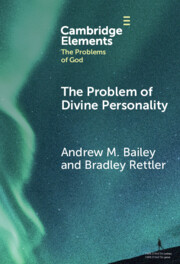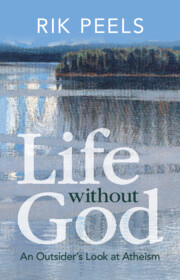3 results

The Problem of Divine Personality
-
- Published online:
- 13 December 2024
- Print publication:
- 30 January 2025
-
- Element
- Export citation
5 - Atheistic Arguments and Faith
-
- Book:
- Life without God
- Published online:
- 11 May 2023
- Print publication:
- 25 May 2023, pp 117-144
-
- Chapter
- Export citation

Life without God
- An Outsider's Look at Atheism
-
- Published online:
- 11 May 2023
- Print publication:
- 25 May 2023

